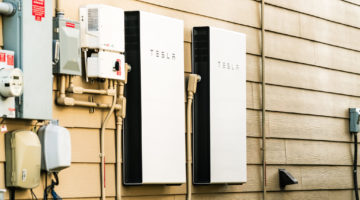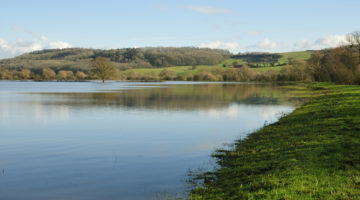
Blackout – Fact or Fiction?
A few weeks ago I watched ‘Blackout’, a Channel 4 series/drama documentary in which they hypothesised the impact of a prolonged blackout in the country. Now as I made myself comfortable in front of my home entertainment system, with the lights on and a cup of tea in hand I couldn’t help but wonder if the producers of the program were purely trying to produce a sci-fi-esque bit of TV to appeal to the masses or actually trying to educate people on just how close we are to this being a reality.
Years ago, we were happy to keep using electricity like there was no tomorrow. However over the last 8 years, energy bills have risen at an average of 10% per year. As a result I think we have become very aware of just how expensive it is to power (and heat) our homes on a daily basis, and therefore we have begun to limit our energy usage as a result.
The issue of price increases stem from our ever-increasing reliance on imported gas and electricity. Until recently, the UK had access to dirt-cheap natural gas from the North Sea. Unfortunately, since 2005, this has not been the case and we have had to import more and more gas from Qatar and Norway – which is driving up the price.
So obviously people are unhappy with paying more for their gas and electricity, but why else should we need worry about importing gas?
Well, gas tends to come from Norway in a big pipe, or from Qatar in large tankers. Imagine if the pipe went offline – suddenly we don’t have enough gas to power our power plants and our central heating systems. Likewise – imagine a Qatari ship carrying gas to the UK didn’t make it. We rely on this stuff to power our country, and we simply don’t have the reserves to deal with any disruption in our delivery.
The UK faces another issue too – and this is generating capacity. So when all our power stations are going full blast (Nuclear, Coal, Gas, and all the renewables) then we have about 10% headroom between supply and demand, but unfortunately even though our energy demand is increasing at a relatively slow rate – our supply capability is actually dropping. You read it correctly – we now produce less energy than 5 or 10 years ago.
Why is the base load diminishing?
One of the main reasons for the reduction in the base load energy generation is that, under the Kyoto protocol, signed in 1997 and an extension drafted in 2012, harmful emissions are lawfully required to decrease. This has brought about the creation of the Large Combustion Plant Directive, LCPD, which is an EU directive that has been put in place in order to reduce these harmful emissions given off by fossil fuelled power stations.
‘Hooray’, I hear you say, ‘finally those nasty, environmentally destructive beasts will be destroyed’. However, 9 out of 19 of the UK’s coal and oil power plants have opted out of this directive, resulting in the requirement that they should close once 20,000 hours of operation have been completed, or at the beginning of 2015 if that number of hours is not reached by then. Without these power plants and the electrical generation that they provide means that OFGEM, (Office of Gas and Electricity Markets), have forecasted major blackouts throughout Britain starting as early as THIS WINTER.
To make matters worse our nuclear plants are also due to go offline towards the end of the decade – so where does that leave us exactly?
Deep, Deep Trouble!
Only last week, those in charge at the National Grid came out and made a statement saying that the headroom between supply and demand was going to be at its lowest for 10 years this winter – at just 5%. So any disruption to our imported gas and we could be in serious trouble – i.e. Blackouts would become a reality…Fact
Earlier this year we were in the grips of what seemed an extended winter – going on a month longer that we had previously been used to. Towards the end of that time, the energy companies came out and said they had about 6 hours reserve of gas. This is not the kind of forward planning you feel reassured about.
What can be done to prevent the blackouts?
The headroom, difference in maximum demand and total supply, is forecasted to reach its lowest point for decades during mid-winter. Having halved since last year, it is a clear message that something needs to be done. I believe that the government have 3 options, which obviously can be used in conjunction with one another.
- Increase generation – build more electricity capacity, allowing the UK to keep up with demand.
- Revolutionise the national grid- Smart grid and smart meters.
- Increase energy efficiency – encourage and reward energy conservation so demand falls and the headroom increases once more
However each point can be argued for and against, making it difficult for those in charge to decide.
What should be done to prevent the blackouts?
On paper – it seems as if increasing electricity generation is the easiest of the three options. Building new capacity in some cases is indeed easy, however take nuclear for example – the Government have been dithering for years about installing new nuclear generating capacity – so even if it were to get planning permission next week, a nuclear power plant may take 12 years to actually produce any power.
The issue with increasing energy capacity is that to be honest it doesn’t really solve our problems – it simply delays them. Our demand will continue to grow so we will need to keep building new capacity. The major thing for me is that it will certainly not solve our reliance on oil and gas form overseas, which is pushing up energy prices for UK consumers.
However, as individuals we can help – by installing solar / wind turbines / biomass and heat pumps, we are each producing a little bit of energy – this means we are helping to redress the supply / demand balance albeit on a pretty small scale!
Revolutionise the national grid?
Another option is to revolutionise the national grid, with the introduction of smart meters and the smart grid. This is a huge and costly process, but it would be a fantastic way to help lessen demand at peak times. The issue is that the Government have pencilled this in for the end of the decade – but it looks like they are not going to be able to afford to implement it on this timescale – at best I think it will be rolled out sometime in 2025.
Increase energy efficiency?
That leaves us with energy efficiency – being able to carry on as we are, with no loss of quality, but complete tasks using less energy than we are currently doing.
Some believe that this will just allow others to become lazy and use more energy, thereby no alteration to the overall consumption levels of the UK will be seen.
However that seems like a severely flawed argument for two reasons. Firstly if you use less energy then you need to pay less – so you win, be it as an individual or a business – therefore this automatically promotes energy efficiency. The other thing is that even though energy efficiency schemes may seem expensive (just see the Green Deal launch!), multiple studies have shown that if done correctly they are 3x cheaper to implement than the cost of adding capacity – so this is really the big winner.
Now we can all help drive energy efficiency forward, but it needs to be a team game (i.e. the whole of the UK) – me changing my lightbulbs for LED bulbs obviously lowers my bills, but if John next door keeps burning through his 100w incandescent bulbs, then obviously we are not going to move forward. We could for example use variable council tax rates to encourage you living in more energy efficiency properties. The better it is – the less you pay.
Therefore – we suggest getting to know your home a little more and then trying to increase the energy efficiency. Not only because it will help save you money as an individual, but if we were all to do it then we wouldn’t be staring into the teeth of blackouts and an unprecedented energy crisis.
So I guess the UK has almost hit a tipping point – we adapt or we find ourselves thrown into darkness and the TV series ‘Blackout’ will become reality sooner than we ever imagined. Scary – buy potentially exciting times ahead then!












No Comments yet! Be the first one.